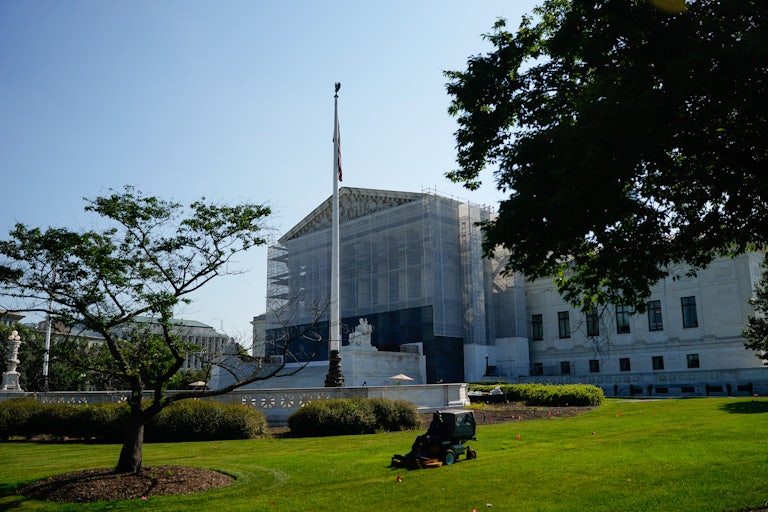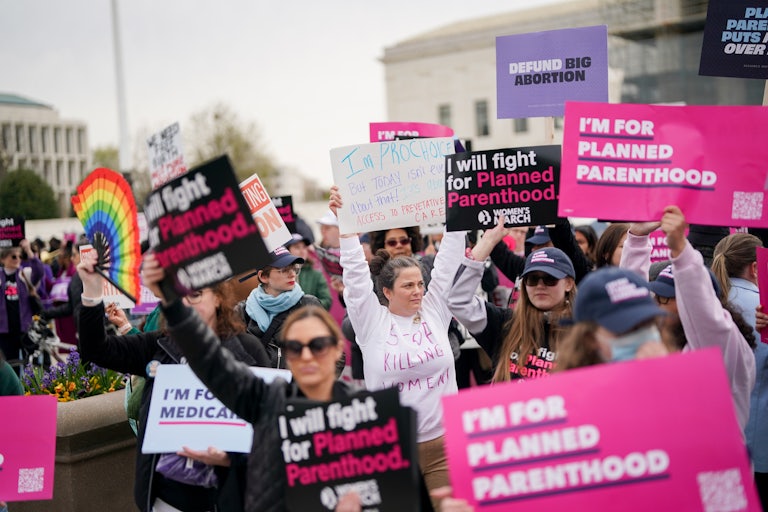Ketanji Brown Jackson Rips Supreme Court for “Stymying” Civil Rights
The Court “will strip those South Carolinians—and countless other Medicaid recipients around the country—of a deeply personal freedom: the ‘ability to decide who treats us at our most vulnerable.’”

Supreme Court Justice Ketanji Brown Jackson wrote that the Supreme Court was “stymying one of the country’s great civil rights laws” after it ruled 6–3 that states could defund Planned Parenthood on the grounds that Medicaid does not give patients a right to choose their provider.
Jackson offered a biting dissent, essentially calling the court’s decision a bastardization of the first section of the Civil Rights Act of 1871, also known as the Ku Klux Klan Act, which bolstered laws against white supremacist terrorism.
“A century and a half later, the project of stymying one of the country’s great civil rights laws continues. In this latest chapter, South Carolina urges our Court to adopt a narrow and ahistorical reading of the 1871 Act’s first section.… That venerable provision permits any citizen to obtain redress in federal court for ‘the deprivation of any rights, privileges, or immunities secured by the Constitution and laws of the United States,’” Jackson wrote. “South Carolina asks us to hollow out that provision so that the State can evade liability for violating the rights of its Medicaid recipients to choose their own doctors. The Court abides South Carolina’s request. I would not. For that reason, I respectfully dissent.”
This ruling makes Planned Parenthood incredibly vulnerable to conservative attacks, as states can now nakedly use anti-abortion activism to deprive it of funds. Though all they’re really attacking is the contraception, cancer screenings, pregnancy testing, and other basic medical care that Planned Parenthood provides as an organization that accepts publicly funded insurance, like Medicaid. The Hyde Amendment already restricts public funding from being used for abortions. And Planned Parenthood is the largest provider of contraceptives and birth control in the country. Its absence will almost certainly lead to more accidental pregnancies—and more abortions, legal or illegal.
“At a minimum, it will deprive Medicaid recipients in South Carolina of their only meaningful way of enforcing a right that Congress has expressly granted to them,” Jackson concluded in her dissent. “And, more concretely, it will strip those South Carolinians—and countless other Medicaid recipients around the country—of a deeply personal freedom: the ‘ability to decide who treats us at our most vulnerable.’”








